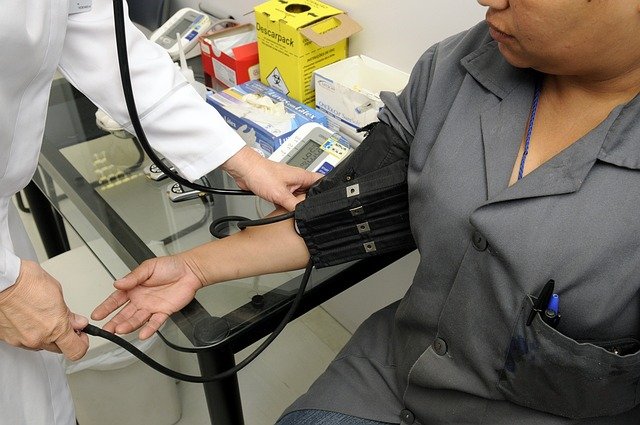Spot Early Heart Failure Symptoms and Explore Helpful Treatments
Heart failure can often be sneaky, with signs like fatigue, shortness of breath, or swelling going unnoticed. Catching these early can make a big difference. Understanding symptoms allows for smarter treatment options, potentially offering relief and a better quality of life. With advancements in medicine, staying informed could be your key to a healthier heart. Don't let this vital info slip past you.

What are the early signs of heart failure?
Heart failure can be sneaky, often presenting with subtle symptoms that are easy to overlook. Common early signs include persistent fatigue, shortness of breath (especially during physical activity or when lying down), swelling in the ankles, feet, or legs, and rapid or irregular heartbeat. Some people may experience a persistent cough, especially when lying down, or notice a sudden weight gain due to fluid retention. It’s crucial to pay attention to these symptoms and not dismiss them as normal signs of aging or being out of shape.
How does a comprehensive health screening help detect heart issues?
A comprehensive health screening is an essential tool in detecting heart issues early. These screenings typically include several key components that can provide valuable insights into your cardiovascular health. Blood tests can measure cholesterol levels, blood sugar, and other markers that may indicate heart disease risk. An electrocardiogram (ECG) can detect irregularities in heart rhythm, while blood pressure measurements help assess the strain on your heart and blood vessels. Some screenings may also include imaging tests like echocardiograms or stress tests to evaluate heart function more thoroughly.
What are the benefits of regular health screenings for heart health?
Regular health screenings offer numerous benefits for maintaining heart health. They can detect potential problems before they become serious, allowing for early intervention and treatment. By identifying risk factors such as high blood pressure, high cholesterol, or diabetes, healthcare providers can work with patients to implement lifestyle changes or medical treatments to reduce the risk of heart failure. Additionally, regular screenings provide a baseline for your health, making it easier to track changes over time and adjust your care plan accordingly.
How often should one undergo a medical checkup for heart health?
The frequency of medical checkups for heart health can vary depending on individual risk factors and age. Generally, adults should have a basic health screening at least once every two years. However, those with known risk factors for heart disease, such as high blood pressure, diabetes, or a family history of heart problems, may need more frequent checkups. It’s best to consult with your healthcare provider to determine the most appropriate screening schedule for your specific needs.
What are some innovative treatments for heart failure?
Advancements in medicine have led to innovative treatments for heart failure that can significantly improve patients’ quality of life. Medication remains a cornerstone of treatment, with newer drugs like SGLT2 inhibitors showing promising results in reducing hospitalizations and mortality rates. Device therapies, such as implantable cardioverter-defibrillators (ICDs) and cardiac resynchronization therapy (CRT), can help manage heart rhythm and improve heart function. For some patients, ventricular assist devices (VADs) can provide mechanical support to a weakened heart. In severe cases, heart transplantation remains an option, with ongoing research into artificial hearts and xenotransplantation offering hope for the future.
How can one prepare for a medical checkup focused on heart health?
Preparing for a medical checkup focused on heart health can help ensure you get the most out of your appointment. Start by gathering your medical history, including any family history of heart disease. Make a list of all medications and supplements you’re taking, as well as any symptoms you’ve been experiencing, no matter how minor they may seem. It’s helpful to track your diet and exercise habits for a few weeks before the appointment. On the day of the checkup, wear comfortable clothing that allows easy access for blood pressure measurements and other tests. Consider fasting if blood work is planned, but check with your healthcare provider for specific instructions.
When it comes to heart health screenings and treatments, costs can vary widely depending on the type of tests and procedures involved. Here’s a general overview of some common heart health services and their estimated costs in the Netherlands:
| Service | Provider Type | Estimated Cost Range (EUR) |
|---|---|---|
| Basic Health Screening | General Practitioner | 50 - 150 |
| Comprehensive Heart Checkup | Cardiologist | 200 - 500 |
| Echocardiogram | Hospital/Clinic | 150 - 300 |
| Stress Test | Hospital/Clinic | 200 - 400 |
| 24-Hour Holter Monitoring | Hospital/Clinic | 150 - 250 |
| Cardiac CT Scan | Specialized Imaging Center | 400 - 800 |
Prices, rates, or cost estimates mentioned in this article are based on the latest available information but may change over time. Independent research is advised before making financial decisions.
In conclusion, understanding the early symptoms of heart failure and staying proactive about your cardiovascular health through regular screenings can make a significant difference in preventing and managing heart conditions. With a range of innovative treatments available and ongoing advancements in cardiac care, there’s more hope than ever for those facing heart failure. Remember, your heart health is in your hands – stay informed, stay vigilant, and don’t hesitate to seek medical advice if you have concerns.
This article is for informational purposes only and should not be considered medical advice. Please consult a qualified healthcare professional for personalized guidance and treatment.
The shared information of this article is up-to-date as of the publishing date. For more up-to-date information, please conduct your own research.




